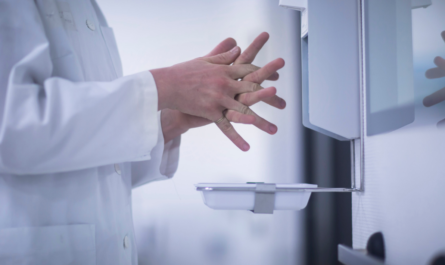Expanding Into Remote Locations
By Ben Burris, DDS, MDS
The advantage of being in small towns or remote locations is obvious. The lack of competition makes it easy to attract all the potential new patients to your office. The negatives are not always as easy to recognize but can include things like:
- A town that is too small to support a full time practice, especially a specialty practice
- Finding providers to go to the remote location can be difficult
- If the practice is not open full time, staffing can be an issue because of travel and the need to hire for part time positions.The lack of a full time team can result in less consistency and can cause patient management issues or potentially, patient dissatisfaction.
- There is the potential for the team to abuse unsupervised time.
Staffing multiple locations can be a pain – especially if you don’t have a dedicated team for each location and you all have to travel between the offices. Having had a great deal of experience in traveling with the team in private cars and corporate vans and planes to distant offices, I can tell you that traveling teams always present a challenge.
There are a few obvious and easy ways to deal with these issues.
- Don’t open a practice in an area that will not support a full time practice and thus a full time team.
- Be sure you have a practitioner lined up before opening another office location and do what you can to keep them invested (possibly through buy in or profit sharing)
- Don’t expand at all until you maximize the facilities you already have (extended hours, more days, weekends, nights, more technology, more marketing, increased capacity, increased speed, etc.)
If you do decide to have multiple locations without a dedicated full time team at each, then there are some ways to avoid team and patient upsets.
- Be very clear about duties and travel when hiring.
- Be very clear about office hours and availability with patients.
- Have at least one team member who lives in the remote community available for emergencies.
- Pay team members for time if they commute in the company vehicle.
- Realize that if you want to grow a remote office it often takes being open more than just the time that’s necessary to see the scheduled patients.
Most of us who have multiple offices have developed, inherited or bought them over the years and learn by trial and error. It is often difficult to have an objective assessment of our ROI and opportunity cost, and even more difficult to admit that having an office in such a location was a mistake and close it. Having closed an office in an ill-advised location, I will tell you that I am much more particular about when and where I expand. Efficiency in Group Practice is all about bigger, better and more. We want you to take it to the next level, but also want you to avoid the mistakes that others have made when going from a solo shop to dominant corporate force. As always, the best advice we can give is to find someone who is already doing it bigger and better than you are and ask their advice. I’m constantly amazed by how generous successful doctors are with their time and advice when I humbly ask for help.
Dr. Burris graduated from The Citadel, in Charleston, SC, with a BS in biology prior to receiving his DDS from the University of Tennessee-Health Science Center’s College of Dentistry in 2001 where he then completed his orthodontic residency and received his MDS in 2004.
After purchasing his first, small practice right out of residency, Dr. Burris expanded his business to include more than a dozen locations across Arkansas and Missouri in less than seven years. He has since sold all but five of his practices, which allows him to pursue his other interests and initiatives in the industry.
Ben created the model for and founded the first chapter of Smile for a Lifetime Foundation (www.S4L.org), which provides orthodontic scholarships to deserving children. S4L now has more than 118 chapters across the US and Canada and since its inception in November 2008, the foundation has provided in excess of $16 million in free care for children in desperate need and otherwise without access to care. All of Ben’s offices participate in the Foundation and in December 2011 his NE Arkansas
Chapter of S4L awarded their 100th scholarship in the three short years since its inception!
Ben lectures routinely to dental students and orthodontic residents across the country and enjoys his role as Clinical Professor of Dental Medicine at Roseman University in Las Vegas where he helps teach the business and practice of orthodontics to the next generation. Ben is the Director from Arkansas for the Southwest Society of Orthodontists, is an alternate delegate to the AAO House of Delegates, serves on the AAO Committee to Study Members’ Practice Environment and Marketplace and is an owner and active member in the exclusive Pro Ortho Business Study Group.
Ben is also co-owner and a frequent contributor to The Progressive Dentist (www.TheProDentist.com) and The Progressive Orthodontist (www.TheProOrtho.com) magazines, which focus solely on teaching the business of running a practice and provide real-world tips on managing a successful dental business.





